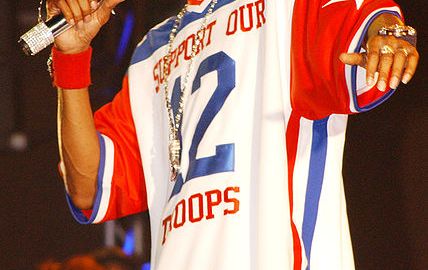The Emerging Political Force That Is Snoop Dogg

He’s been happy to lend his celebrity to causes in an effort to broaden their scope. Despite his background and image, few people in his industry have been as unapologetically vocal regarding issues that most celebrities would normally tiptoe around. Among the world’s most-recognized artists, he might suddenly be the most-fascinating political force in music. Sigh, it’s Snoop Dogg. Yes, that Snoop Dogg.
It might seem absurd to consider, especially from the rapper who almost singlehandedly popularized the words “pimp” and “ho” and whose past is marked with legal troubles and almost two decades of controversial lyrics. But considering researchers have confirmed that celebrity can turn an election, Snoop probably should be taken a lot more seriously.
For a man who was effectively banned from Britain three years ago, this would be a surprising take. But it’s how forcefully Snoop, or at least his representation, has fought that ban that could speak as much of his forcefulness. It’s a political fight that actually isn’t completely unfamiliar to Mr. Dogg, aka Calvin Broadus.
Most of us caught a glimpse into Snoop’s burgeoning political conscience in 2005 when he protested on behalf of Crips founder Stanley “Tookie” Williams, who was executed in December of that year. Snoop even wrote a song alongside Jaime Foxx to bring attention to Williams’ cause. Snoop had previously participated in a number of voter registration campaigns, although he had shared very little about his own voting history. But the outright political defiance he seemed to demonstrate at San Quentin protests was unprecedented. The rapper, who is also experiencing difficulties obtaining a Visa in Australia, may have just been getting started.
In 2008, regardless of how seriously political insiders took him, Snoop emerged as an artist suddenly energized politically. After being openly combative with divisive talking heads like Bill O’Reilly and Don Imus, Snoop appeared to dive head-first into a historic presidential campaign. Sharing his thoughts with Larry King, Snoop projected a unique side of his public self, waxing on the Democratic primaries while distancing himself from the Democrats and Republicans in favor of the independent neutrality of “the Gangsta Party.” Not long after his appearance on King, Snoop voiced his take on the transcendent nature of the 2008 election in a story in Newsweek.
In a truly unprecedented move, Snoop even became the first high-profile celebrity, particularly in the African-American community, to voice concerns over President Obama. In perhaps his most politicized comments, Snoop deconstructed Obama’s then-controversial connection to Pastor Jeremiah Wright in a 2008 profile in the Guardian. Then in a perhaps-misguided statement made in the same profile, Snoop also suggested that the Ku Klux Klan had funded Obama’s campaign.
Despite some controversial assertions, Snoop was also active in the “Don’t Vote” registration campaign and even came out last year to support Louis Farrakhan and the Nation of Islam. It would be easy to dismiss all this as purely-promotional acts from an artist living in the celebrity bubble. But perhaps no artist has been as well-travelled or culturally-immersed in the past few years as Snoop Dogg. His legal battles in Britain and Australia aside, in the past two years, the rapper has performed in both Israel and Lebanon and even appeared in a Bollywood film. So you could make the case that Snoop Dogg’s political platform was shaped out of something more worldly than his own opinion.
Even if you don’t take Snoop Dogg seriously as a potential political force, your kids certainly will. And that is something to consider.




